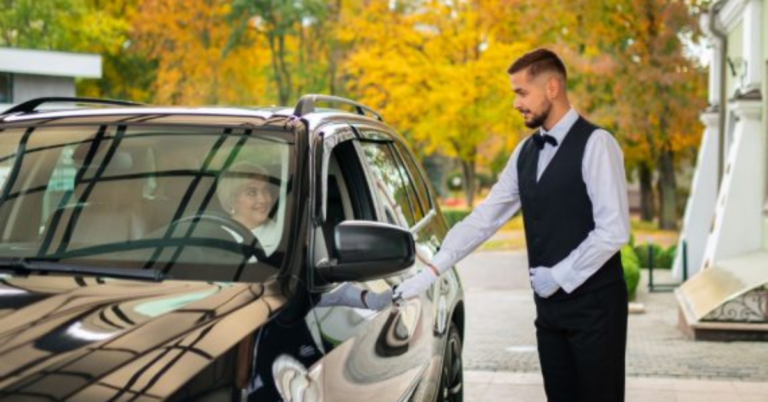Personal Security Guard: Safeguarding Lives in an Uncertain World
In an age of growing complexities and unpredictable threats, hiring a Personal Security Guard is no longer a luxury—it’s a meaningful investment in peace of mind and protection. Whether you’re a public figure, business executive, celebrity, or simply someone who wishes to feel safe during travel or daily life, a trained personal security guard can serve as your shield in situations where vulnerability becomes a liability.
Why Personal Security Guards Matter
Modern life demands mobility, visibility, and exposure. Whether you’re attending a public event, navigating high-risk zones, or leading a high-net-worth lifestyle, potential threats like harassment, stalking, kidnapping, or violence are real. In such cases, ordinary security measures often prove inadequate. A dedicated personal security guard is specially trained in threat detection, crisis response, and protective tactics—and their presence alone often acts as a strong deterrent.
A Personal Security Guard does more than stay close by: they read environments, anticipate danger, respond swiftly in emergencies, and protect your dignity while doing so discreetly. Their role blends physical protection, situational awareness, and behavioral finesse, making them indispensable in many contexts today.
Types of Personal Security Guard Services
Different situations call for different levels of protection. Here’s a breakdown of the primary categories:
1. Armed Personal Security Guards
Ideal for high-threat environments—such as legal confrontations, political campaigns, or high-profile appearances—armed guards are licensed and trained in weapon usage under strict regulation. They often come from defence, paramilitary, or law enforcement backgrounds. Their training includes secure weapon handling, threat neutralization, and tactical response in evolving scenarios.
2. Unarmed Personal Security Guards
For lower-risk settings corporate engagements, social events, or daily errands unarmed security professionals offer subtle yet effective protection. Their capabilities include crowd management, surveillance, conflict de-escalation, and emergency evacuation techniques without resorting to force.
3. Female Personal Security Guards
Certain clients may prefer female guards for cultural compatibility, privacy, or comfort especially when working with women, children, or in environments where gender sensitivity is paramount. Female personal security officers are trained just as rigorously, providing both competence and reassurance.
4. Event-Based & Temporary Protection
Large functions, weddings, political rallies, or other short-term events may require extra security for limited durations. In such cases, personal security officers can be deployed temporarily covering entry management, crowd control, VIP escorting, or venue sweep and threat assessment just before or during the event.
Key Considerations When Hiring a Personal Security Guard
Selecting the right guard is as critical as hiring one. You must assess more than just appearance or presence. Here are factors you should evaluate:
-
Legal compliance & licensing: Ensure the provider and the guard are certified and hold necessary permits.
-
Background verification: A clean history is essential—reliability and integrity are non-negotiable.
-
Training & expertise: Look for agencies that train their guards in real-world tactics, emergency protocols, and soft-skills.
-
Regional familiarity: Guards who understand local terrain, language, and customs are more effective.
-
Physical fitness & presentation: A guard must be fit, presentable, and capable of enduring demanding assignments.
-
Communication & discretion: Your guard should interact appropriately, maintain confidentiality, and blend when needed.
-
Rapid response ability: In emergencies, reaction time and decisiveness matter most.
What Well-Rounded Guards Bring to the Table
A high-caliber personal security guard adds value through:
-
Real-time threat detection
-
Discreet monitoring during outings or public exposure
-
Secure travel escort (on foot, in vehicles, or between sites)
-
Professional and respectful demeanor—even under stress
-
Soft-skill application, such as conflict resolution and people management
-
Coordination with additional security teams (if needed)
These strengths help clients preserve safety without compromising dignity, comfort, or productivity.
Who Benefits from Personal Security Guards?
The demand extends across multiple profiles:
-
Celebrities, influencers, artists
-
CEOs, business leaders, high-net-worth individuals
-
Politicians, lawyers, public witnesses
-
Families, especially those with children or vulnerable members
-
International travelers, diplomats, NRIs visiting India
-
Event hosts, organizers, speakers or performers
Any individual exposed to public attention or operating in uncertain environments can benefit from added protection.
Regional Deployment & Operational Coverage
Effective personal security isn’t just about having personnel—it’s about placing well-trained guards where they’re most needed. Regional deployment ensures faster response times, local knowledge, and cultural sensitivity.
In states like Delhi, Karnataka, Tamil Nadu, Telangana, and Meghalaya, security agencies often maintain operational hubs to provide prompt, area-specific support. That geographical spread lets clients tap into regionally based guards who are already familiar with local routes, norms, and protocols.
A Glimpse into Daily Duties & Workflow
Here’s a sample of how a personal security guard might operate during a typical assignment:
-
Pre-Assessment
Conduct location checks, threat assessments, route mapping, and planning. -
Client Briefing & Protocols
Understand client preferences, routines, vulnerabilities, and communication etiquette. -
Advance Reconnaissance
Visit venues beforehand, identify escape routes, strongpoint locations, and blind spots. -
Protective Coverage in Action
Maintain buffer zones, scan surroundings, intercept suspicious individuals, and dynamically reposition as needed. -
Crisis Management
Be ready to de-escalate tensions, administer first aid, coordinate with law enforcement, and execute extraction if necessary. -
Debrief & Feedback
After duty, review performance, document incidents, and adjust future plans accordingly.
Every movement is backed by training, protocol, and adaptability—not reaction alone.
Cost Considerations & Value Proposition
Many are deterred by perceived costs of personal security. Yet, when compared to the potential losses—monetary, reputational, emotional—the price often seems modest. Key cost factors include:
-
Skill & experience level
-
Armed vs unarmed status
-
Duration and timing of assignment
-
Travel logistics & regional deployment
-
Specialized services (e.g., driver, medical backup)
A well-chosen guard or team mitigates risks that conventional strategies can’t, safeguarding lives and assets.
Challenges & Best Practices
Even the most qualified security plans can face hurdles:
-
Over-reliance on force: Protection is as much about prevention as it is about armed response.
-
Complacency over time: Guards and clients must stay vigilant even when no threats are evident.
-
Coordination with agencies: Working alongside private and public security forces demands clarity and planning.
-
Balancing visibility vs discretion: In many scenarios, blending in is more effective than glaring presence.
Best practices include constant training, surprise drills, rotating guard schedules, and open lines of communication between client and security provider.
The Future of Personal Security
As technology evolves, personal security is also entering a new phase where CCTV-backed monitoring, wearable threat detection, drone-assisted surveillance, and AI-powered analytics will increasingly integrate with human protection. But no matter how advanced tech becomes, the human instinct, judgment, and courage of a personal security guard will remain crucial.
In conclusion, the decision to hire a Personal Security Guard is more than hiring muscle. It’s an investment in peace, dignity, and assurance especially when life’s exposures leave you vulnerable. In uncertain times, a committed, trained, and strategic protector is often the difference between danger and safety.







